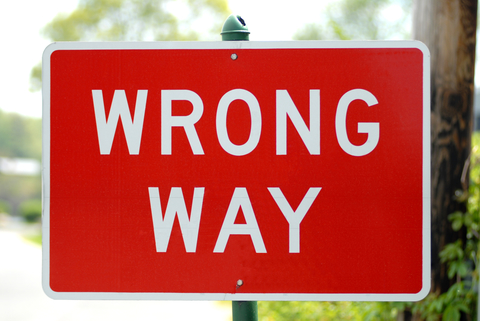Rise from the wreckage

The news is full of stories of the fallout from mistakes by organisations. Sometimes the response from the company beggars belief. In these cases the response exacerbates the problem rather than alleviates. How does that happen? How do you ensure it doesn’t happen in your organization?
Mistakes happen. The consequences can differ significantly. From reputation damage, to compensation claims, to environmental damage, to financial losses. Even the smallest mistakes take time, energy and therefore cost to resolve. The effects can be short lived or lengthy and protracted. Once a mistake has happened the quicker wisdom based action based is taken, the more chance there is to limit the negative impact and perhaps enhance the reputation of the business.
Sometimes the action taken immediately after a mistake makes the situation worse. The problem is exacerbated and the amount of time, energy and money it takes to resolve the issue is increased. Reputations are decimated. This is when action is taken from a cloudy or unclear mind. What we would call an unhealthy state of mind.
After a mistake happens an unhealthy state of mind may include thoughts of judgement and criticism, wishing it hadn’t happened, the ‘shoulds’ – what they should have done/not done. It can also include multiple replays of the event in the vain hope of a different outcome, condemnation of self or others for not heeding the warning signs, worry about potential consequences. The list goes on. Sometimes it lasts for a few minutes. Other times much longer. In this poor state of mind it’s difficult to think clearly. Which accounts for unwise decisions or public statements being made immediately following public mistakes.
An unhealthy state of mind is very common in the circumstances. We’re all human and subject to this kind of thought sometimes. If we are a leader we need to move out of this unhealthy state of mind quickly to make a good decision.
Quick decisive action taken from a healthy state of mind can mitigate the problem and ensure its fast resolution. Decisions made with a clear mind will determine how quickly the company recovers from the mistake, or learns from the experience. But how to get into a healthy state of mind quickly?
A first step that can help you to fall into a healthy state of mind is acceptance, regardless of the significance of the mistake.
What do I mean by acceptance? First I want to be clear about what it is not.
Acceptance is not denial. It happened. You might not have wanted it to happen. You might wish something different had happened but you do not deny that it happened.
Acceptance is not condoning. You are not saying it was ok for whatever took place to have happened. You are not condoning the act that resulted in the outcome.
Acceptance is not resignation. Acceptance does not mean that you will expect or allow it to happen again.
Acceptance does not mean no consequences. If the act was negligent or deliberate, if an injury occurred, if there was financial loss, if a crime was committed then there are likely to be consequences.
Acceptance is not powerlessness. It is not inaction. It is not passive.
What is acceptance?
Once a mistake has happened, there’s no going back. Much as we’d like to it’s impossible to go back in time and change what happened.
Acceptance is an acknowledgement that the mistake has happened, that it cannot be changed and that it is time to move forward.
Acceptance is seeing the facts of what happened without the layers of story around it. (without judgement, criticism, the content of clouded thinking)
Acceptance is the first step towards action.
How does it help?
Acceptance gives you back your power. When you accept what has happened and know that you cannot change it, it is now within your power to move forward.
Acceptance brings objectivity. You see the facts of what happened, you see perspective. You see the next steps and what needs to happen to prevent reoccurrence.
Acceptance brings you back to the present moment – the only moment in which you can act. It places what happened squarely in the past. From the present moment you can look back at what happened, see what needs to happen now and plan for the future.
We often use a snow globe as a metaphor for thinking. Acceptance settles the snow globe. While the snow globe is shaken up your focus is clouded, your perspective narrow. When the snow globe is settled you see the facts with clarity and you have a wide perspective. Your decision making skills are enhanced.
When you know that you can’t change the past, when you accept what happened without judgement, without criticism, then your mind is clear, then you can move quickly to the next step.
When your mind is clouded, acceptance can be the first step back to a healthy state of mind.
This entry was posted in Article, tagged Acceptance, Resourcefulness, Uncertainty, Anxiety, Wisdom, Thinking, Mistake and posted on March 8, 2018
